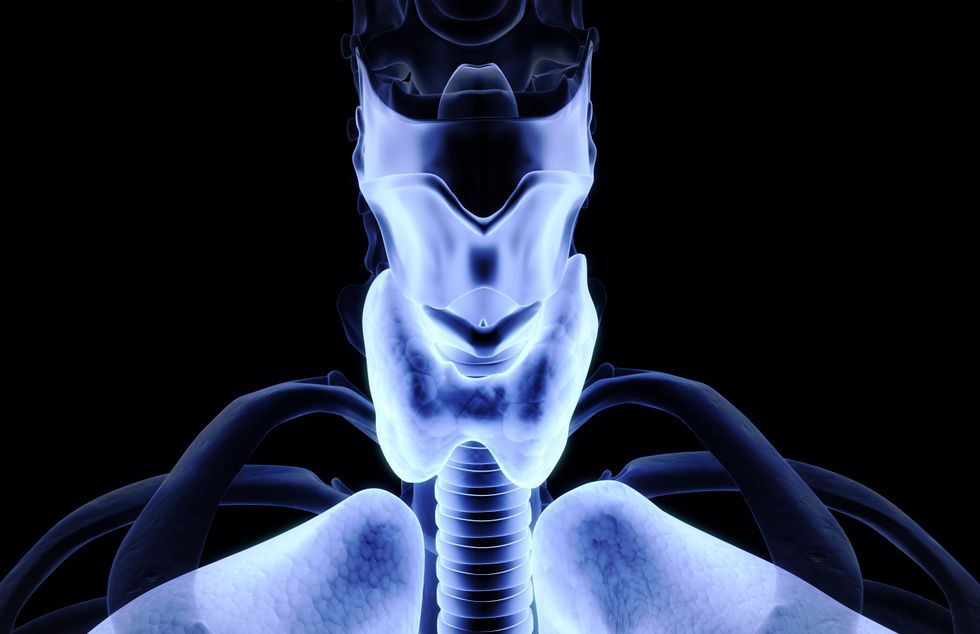Hypothyroidism symptoms appear gradually, often mistaken for ageing - and some foods make them worse, expert warns

WATCH NOW: Menopause weight loss tips
|GBN

Making dietary changes could help protect your thyroid from an autoimmune attack, a doctor has cautioned
Don't Miss
Most Read
If you're feeling constantly tired, gaining weight without explanation, or struggling with mental clarity, you might be experiencing the early warning signs of hypothyroidism, an expert has warned.
Triple board-certified medical doctor Aaron Hartman, who specialises in autoimmune diseases and chronic health conditions, told GB News that because the symptoms of the condition creep up slowly, they are easy to dismiss.
"The most common early symptoms of hypothyroidism are persistent fatigue, weight gain, cold intolerance, cognitive impairment (brain fog), constipation, dry skin and hair (including hair loss), puffy face (especially periorbital), depression or mood changes, muscle weakness and joint pain, and heavy or irregular menstrual periods," Dr Hartman explained.
TRENDING
Stories
Videos
Your Say

Many people confuse hypothyroidism symptoms with signs of ageing
|GETTY
"Symptoms often develop gradually and can be mistaken for stress or ageing," Dr Hartman noted.
While the condition affects multiple body systems simultaneously, people often first notice they can't tolerate cold temperatures. Then their bathroom habits change, with persistent constipation becoming an issue.
Physical changes can become particularly noticeable, too, including dry skin, hair loss, and a puffy appearance around the eyes. Mental health changes typically include depression and mood swings.
Women may experience heavier or irregular periods, while both sexes report muscle weakness and joint pain that make everyday activities more challenging.
What causes hypothyroidism?
Most cases of this thyroid condition share a common culprit, according to Dr Hartman. He revealed: "Almost 80 per cent of all cases of hypothyroidism are related to an autoimmune disease called Hashimoto's hypothyroidism.
LATEST DEVELOPMENTS
"[This] is where your body attacks itself and over time destroys your own thyroid tissue."
This autoimmune attack doesn't happen randomly; four factors must align for autoimmune disease to develop, including genetic predisposition, a triggering event, leaky gut, and chronic infection.
"This is where diet and lifestyle are crucial," he emphasised, pointing to the significant role that everyday choices play in whether someone develops this condition.
Dietary triggers
"Processed foods, specifically processed gluten and breads, are a key marker or key trigger for autoimmune diseases and especially autoimmune thyroiditis," Dr Hartman warned.
But gluten isn't the only dietary villain. "The second most common food behind gluten that can trigger autoimmune processes is dairy," he added.

Hypothyroidism signs are easy to miss
|GETTY
Dr Hartman recommends adopting a clean diet that eliminates processed foods, particularly these two major triggers.
He expressed concern about the current food system, noting: "The crazy thing about it is that most of these foods in our food system are highly processed, pasteurised, and filled with chemicals."
Making these dietary changes could help protect your thyroid from autoimmune attack.
Our Standards: The GB News Editorial Charter










